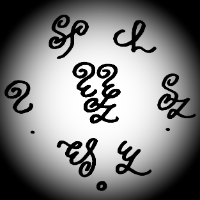Leaderboard
Popular Content
Showing content with the highest reputation on 03/19/2023 in all areas
-
Really lovely piece of music! The harmony and orchestration are extremely colorful and create a really evocative mood. I do agree that it feels at times like pieces joined together, as opposed to a whole. That's something I also find myself doing, so I completely understand. I think Henry's suggestion is a good one. I know for myself, I have to make a conscious effort to not get into an episodic mode when writing. Like yourself, I am also a self taught composer. Don't let that get you down though. Just remember that Anton Bruckner was also a self taught composer and his music is played in concert halls across the globe.2 points
-
1st movement only so far (started June 2022, finished December 2022), will probably be several years before completely finished. 693 measures, 21 minutes, based on 17 random themes Scoring: 2 flutes, 2 oboes, 2 clarinets, 2 bassoons 3 horns, trumpet, trombone 2 violins, 2 violas, cello, double bass Piano, harp1 point
-
I wrote this on my guitar. I'm a finger picker. The guitar part is very difficult to play in real life. I tried my best to transfer what my fingers were doing on the guitar into the Sonar 8.5 piano roll. I used an acoustic guitar virtual instrument but some of the velocities (basically volumes) on certain notes were a bit loud and I was faced with the choice of having some notes stand out or stepping down one velocity level where the note could barely be heard. I chose loud. Ahhh, the fun we have with sampled instruments. I searched the YC website to see if I posted it in the past and didn't find it, so I thought I'd go ahead and post it here. NOTE: Just for fun I also posted a stripped down version here with just guitar, bass, drums, and the sound fx at the end. Enjoy. -Rick1 point
-
Hi @Henry Ng Tsz Kiu, @Krisp and @Omicronrg9, thanks for listening and commenting! I agree with Henry that it's a pity to just double voices, but I was looking for color more than anything. I know it's a big sin to fall in love with your own music--but I did grow fond of the melodic exchange (thanks for remarking on it, Omicron!) and I would feel bad to add countermelodies. That said, definitely questionable that piano and harp can play together like written (and I should ask harpist friends if this is playable at all). I have tried to fix most of the engraving issues highlighted by Omicron. PS: Speaking of engraving, I agree that the tempo marking on M90 should not be repeated, but I don't how to otherwise make Sibelius playback go back to the original tempo. "A tempo" does not work or I haven't been able to find it. Any advice?1 point
-
Thank you for your feedback! Personally, I do not mind parallel 5ths at all. I find them quite colorful when they're used correctly. As for the spacing in measure 39, I find it creates a very open sound, which I quite enjoy. Personal taste is what matters though, and I'm glad you liked the first one. : )1 point
-
Thank you for your correction. My teacher is from Fujian, so she taught me Simplified Hanzi. I really don't want to meddle into what territories belong or don't belong to Beijing, since I intend to work as a Spanish teacher somewhere in China in a few years time. Thus, I'll sadly have to remain a-political on this regard, both for the sake of the forum's rules and my own professional carreer, just in case. Still, I wish you and all you hold dear the best. In his youth, Brahms decided to burn most (if not all) of his early works and then start over, for he deemed said compositions not to be serious enough. So, to "pull a Brahms" in this context would really mean just that. Quite literally. In my case, that would mean throwing away my computer or deleting all my composition folders, and I even used to consider doing just that at one point. More than once even. However, no matter how terrible my very first compositions were (I still cannot stand to look back at them), I think they serve as a testimony of my compositional path, and thus I have decided to keep them in a safe place. (Well, if you can call my Trash folder "safe" enough to avert one's eyes at, that is). As you may have noticed, conversing about the nature of the current Chinese government isn't either my forte nor something I feel too comfortable casually chatting about, specially since what I say about Xi's China here could influence my ability to get my desired future job. I'm sorry not to be able to tell you my own thoughts on that regard, but considering the fluidity of the Internet and the speed at which information and data travel nowadays, I shall better be careful. Best wishes, Pablo1 point
-
What I get from this is: 很感謝您的鼓勵,Henry。我現在仍然在學習漢語,所以請幫我用正確的漢字和文法。 Btw I use traditional Chinese since I live in Hong Kong! YC is really a great forum for us to meet and share our thoughts! That's good to hear and hopefully you will share more of your works here! Haha what does "pull a Brahms" here means? Haha it seems off topic but I am really interested in philosophy. I am really lucky to be born in Hong Kong to be influenced by the New Confucianism as it is a trend to combine Confucianism with German Idealism including Kant and Hegel as well as Fichte. German Idealism is really one of the height of Western Philosophy. My favourite Kant is Kritik der reinen Vernunft since it greatly influences my way of thinking and his Trascendental Idealism is so amazing. Kritik der praktischen Vernunft is great as well though not as great comparing to the Confucianism when morality is the main trend for thousand years. I know some basics of Hegel but yet to read his works since I don't even begin on Fichte and Schelling. That dictator, however how evil he is, is still a human being. That's what the most horrible thing at all. As Goebbels said in the film Der Untergang people voted that dictator to be on the top. But this is mainly caused by the anti-Enlightenment and anti-Idealism, not caused by them, so why should we chase for the bullsxxt and throw the jewels away? Some even hates Beethoven and Wagner since the Nazis played them in the camps. But what's evil is definitely not in Bee and Wagner at all! Henry1 point
-
@Henry Ng Tsz Kiu Yes I am lucky to have a very good music department at the school I go to. I definitely see your point about the 2nd subject recapitulation being in the tonic major may not be appropriate given the scale of the piece whereas in Beethoven's 5th it makes sense. I think as you have said, I will probably have to choose between extending the 2nd subject or having it in the tonic minor. I am leaning towards just putting it in the tonic minor. -Will change the tremolo markings, and good to know for the future. Is it tremolos in general that are not idiomatic to the piano or is it just the fact that it is quaver tremolos? -I think if I have the 2nd subject come back in tonic minor, then I think an undeveloped 2nd subject would not be inappropriate. Thank you again for the help, Louis1 point
-
很感谢您因为好话同情,Henry。我仍然只是中文学生, 所以请帮我用正确的汉字或法律。 Regardless, you don't have to correct me if you don't feel like it, I don't want to waste your time with the fact that I'm still just in HSK3. I really have no words thankful enough for your sincere kindness and open admiration for me humble amateurish works. It fills me with joy to a degree that cannot be conveyed through a screen in an online forum. Worry not, I already have and will keep trying different styles, such as in my Ballade in B minor (not sure if it's published here, but it sure is on my YouTube channel). However, my devotion towards Bach's spirit still burns bright and sound within me; even if a bit too obsessive at times. Still, that doesn't hinder my ability to diverge from my most recurrent style, intendedly akin to his. After all, if I submitted to the Pope's demands over profane music like Palestrina once did, most of my work would have to be destroyed on a book-burning spree, since I'm agnostic. And that's a fate I intend my works never to suffer, as I have sworn myself never to "pull a Brahms" on that regard. 😉 In regards to philosophy, I forgot to mention that Kant sits as well within my little personal pantheon, next to Hegel. Most of his work, and especially Kritik der praktischen Vernunft, have thoroughly influenced my own thought and philosophical conceptions about existence to a degree that can only really be matched by Hegel and his Phänomenologie des Geistes. As you can probably notice, my sheer admiration for everything German from the 18th and 19th centuries knows no bounds, even as a Spaniard, which brings some of my acquaintances to suspect some strange connections regarding certain totalitarian regimes and the like, totally unfounded and basing themselves on mere prejudice. It pains me to see people still hate an entire country just because its inhabitants were brainwashed into believing conspiracy theories by a single horrendous madman and his government of terror. But perhaps I tend to adhere to Hannah Arendt's banality of evil too much. Who knows. Kind regards, Pablo1 point
-
I didn't realize a Romance is always 3/4 etc... Thanks for informing me. Mark1 point
-
Yeah because I immediately take my own copy of WTC I for a look and scan the difference between yours and Bach's piece. For me composers are never god, they are just human beings with excellence of skills and human understanding. If we treat them as god, we will undermine our own ability to reach at least a hunderdth of their level. But I also love your humbleness towards great composers which I share! I don't think you are crazy though. When I was young I considered myself a disciple of Beethoven too and I tried to imitate him in every possible ways. However now I know we are different human beings and we can only do what we are capable of doing. What's in my thoughts is surely not in Beethoven since I am a Chinese and he's not. But there's L.C.M in our humanity (my adorable and loving professor of Philosophy's favourite term) too, thus we can achieve sameness of humanity and morality through difference of music and probably enrich it by providing different music to humanity. You are this young and compose with this kind of skill and craft, and I admire you for all your works! Of course you can keep composing Baroque and fugal stuffs if you really want to chase the footstep of Bach, but I will also encourage you to try different styles as well if you want to be a different voice! Btw I don't think Hegel's Absolute Idealism works without Chinese Confucianism. I prefer Kant's Moralistic Idealism more though. Henry1 point
-
Most times I listen to someone comparing me to Bach as a cheap compliment, it tends to take me quite aback. It's a bit of a taboo for me, to insinuate that the humble amateur composer I currently am and will surely remain as could ever be remotely close to His levels of magnificence, skill, craftsmanship, devotion and sheer tenacity. Your arguments, however, are rational, nuanced, and well-informed, so I don't sense this being the case. I sometimes wonder whether the kind of deifictional admiration I project onto Bach's art and soul ought to be considered pathological. But at the same time; I just cannot help it. If he truly were God (not just metaphorically, that is) and I were Abraham, I would destroy my work at his command and without hesitation, just as Isaac was to be sacrificed by his own father. If I were ever to forsake Bach's insurmountable legacy, I would eventually end up taking my own life to cleanse the world of such horrid sin of mine. I pray and wait for the day when I finally die to come, for then I will listen to St. Matthäus Passion for the last time as I am brought before his throne, with Tolkien and Hegel by His sides; my little pantheon will only then be conjoined to lay my soul to rest. The soul of a devoted admirer who would do anything for Him, His heavenly, eternal music, His magnificence, His genius. Anyway, please ignore these crazy dogmatic ramblings from a 17-year-old Aspie haggard and keep pretending I'm somebody at all, if that's the way you feel most comfortable in treating those fortunate enough to receive your constructive criticism.1 point
-
Good afternoon fellow composers! I am very excited to present my latest large scale work, the first movement of my Symphony No. 1. My plan for the symphony is for it to be a “complete concert experience” with two large scale movements surrounding two shorter and lighter movements. This first movement is thus quite long, clocking in at a little over 27 minutes. It is intended to be almost a “symphony within a symphony”, preparing tension to be resolved later in the work, while still functioning as a standalone piece in its own right. I had a few goals in mind as I composed this, feel free to evaluate how well I achieved them: Focus on simple, memorable themes and motives Write a large scale opening symphony movement that could also function as a standalone piece Build a large movement on the development of two simple motives, specifically Motive 1 - a sequential 5th motive, first in the bass clarinet and bassoon at the beginning Motive 2 - an alternating ascending, descending motive, first in the low winds/strings and English horn/saxophone in the B section Integrate euphonium and saxophone into the orchestra Make use of auxiliary brass The movement is structured as a Rondo (A-B-A-C-A-D-A-B-A-coda), albeit with several creative liberties taken. Since it is quite long I’ve broken it down into several smaller sections if you prefer to only listen to a small piece. The structure is detailed below: 00:00 - A section - the piece begins quietly with sustained notes in the basses, with the low winds introducing Motive 1. This is repeated and embellished by the oboe and others 1:38 - B section - the broad opening theme gives way to a heavy and ominous pulse in the low strings and woodwinds. Motive 2 is introduced here first in the English horn and saxophone, then expanded and embellished, and leads up to a climax 4:46 - the A section returns, this time building into a brassy fanfare, but left unresolved. This section ends with a lively cacophonous polyrhythmic buildup that develops Motive 1 and leads into the next section 6:56 - the C section opens with a contrapuntal section, which utilizes and expands Motive 2 within octatonic scales that plane between each other, then leads into an ominous ascending theme (an inversion of Motive 2) that climaxes with a fiery rhythmic dance in frequently changing time signatures, this is repeated, then interrupted by a quiet irregular heartbeat in the harp and celesta, that eventually erupts before returning to the opening contrapuntal figure, this time in the woodwinds 11:05 - the A section theme returns briefly, this time as stacked fifths in the brass, and stated explicitly by the muted horns 11:45 - the D section begins with a lyrical theme in the English horn (formed by combining and rearranging Motive 1 and Motive 2), which is passed back and forth between the saxophone and bassoon. The texture slowly winds down, allowing a woodwind choir to emerge. The mood is bleak, but the strings enter and the mood shifts suddenly to hopeful and optimistic, before an epiphany is reached. The key returns to C major for one more buildup to the climax, with the brass exclaiming Motive 1, this time in a major mode. 15:50 - formal return to the A section, with mostly the same structure but the instrumentation is varied 17:27 - formal return of B section, this time a quiet horn solo prepares a fast whirlwind of a climax, before coming to a halt and preparing for the return to… 21:37 - the A section fanfare returns, this time enhanced by auxiliary brass. The climax is more resolved, but still leaves something wanting before the cacophony from earlier in the movement leads into the coda 24:09 - Coda - the ominous ascending theme returns here and is used to build tension along with distortions of the fiery dance from the C section. The irregular heartbeat returns as well, and leads into a chaotic polyrhythmic volcano that over flows into the final statement of the two motives overlaid on top of each other, traded back and forth between the auxiliary brass and the orchestra As usual, I have several questions for feedback, feel free to answer as many or as few as you wish: What effect does the music have on you? Does in conjure up an image? Or an emotional feeling? Does it tell you a story? This can be the piece as a whole, or a specific part or parts. What was your favorite part? What was your least favorite part? Does this work well as the first movement of a symphony? How about as a standalone piece? How well do you think the motives are developed? Do you have any comments or critiques on technique, e.g. harmony, melody writing, counterpoint, orchestration, voice-leading, etc.? How do you feel about the overall form? Is it effective? How well do you think the euphonium and saxophone are integrated with the rest of the orchestra? Do you have any comments of the quality of the performance in the audio file? I really want this to be a decent representation of how the piece would sound if it were performed live, since it is unlikely it ever will be. Feel free to put your "conductor hat" on and critique the "orchestra". I have included a score and welcome any constructive feedback on its presentation. And if you're like me it's a lot more fun to follow along with the score. Are there any composers this reminds you of, that I might enjoy listening to? Sound libraries Spitfire Symphonic Orchestra and Spitfire Percussion VSL Synchron brass and woodwinds Thanks for listening, I hope you enjoy! If you liked something I did and want me to explain how I did it, feel free to ask. -gmm Score link here1 point




